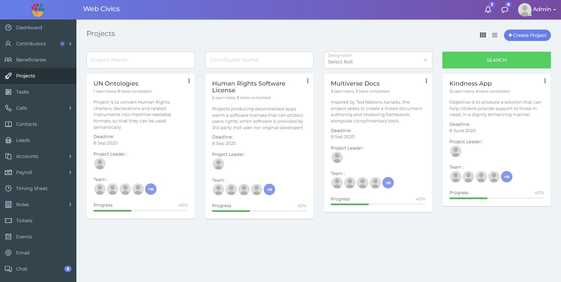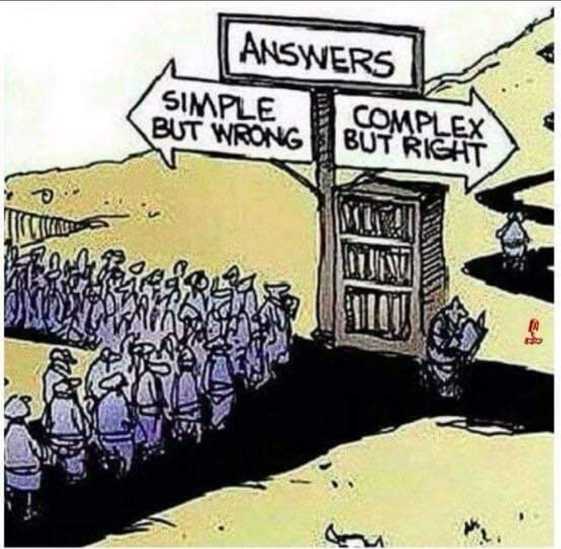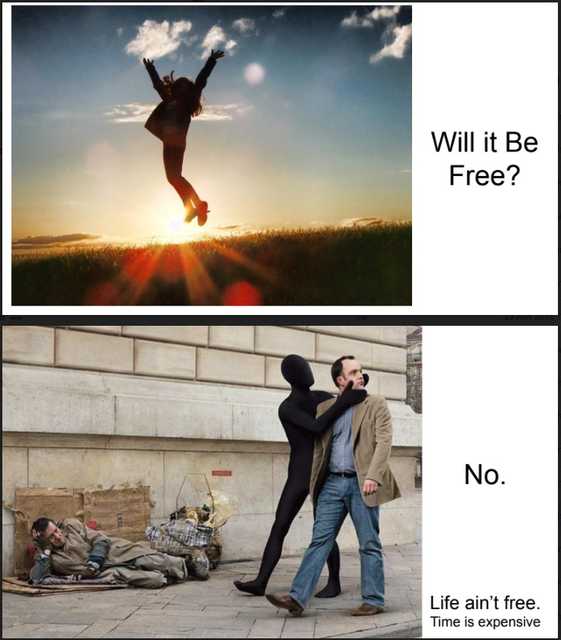Problem Statement
Below is a list of different problems that are sought to be considered and addressed in the permissive commons ecosystem solution in an appropriate and/or fit for purpose manner.
The main reason for adding it here, is to provide it as supporting background notes.
The objective outcome is to have a specification that is firstly going to be applied for the Webizen Ecosystem solutions, yet others may take it up and its being designed to support that sort of outcome.
In the webizen systems, there are agents that are designed using 'artificial intelligence' technologies. These agents use SemanticWeb technologies - namely, RDF SemWebOntologies, which structures the content in relavent documents and databases in a way that means other systems are able to process that data without needing to produce new APIs (application program interfaces). Historically, the way these systems have worked is that some groups produce an ontology and then publish it somewhere on the web. This ontology is then used by other people, processes and systems to structure their electronic documents (databases) so that the information can be consumed by other systems easily.
These systems have suffered from an array of problems.
- The ontologies have either become unavailable on the original location or lost entirely (other than the copies others may have of that document)
- The ontologies may change but the version of the ontology isn't properly defined, so any document referring to it - may in-turn be contextualised in a way that is different to the intended meaning when the document referring to the ontology in reliance of that resource being contextually static - becomes disaffected.
There are also a few different classes of ontologies, some consider the records about a persons life to be a machine-readable ontology of that person; which is different to the ontologies used to structure the documents that create one or more of those records.
Dependencies
In-order to realise solutions for many of these goals, the systems need to be produced in-order to deliver the capacity to resolve the problems; but the practice of producing solutions to these sorts of problems still maintains exposure to various SocialAttackVectors without SafetyProtocols being operationally useful, as a consequence of the systems to achieve that not being made yet. They often talk about 'chicken or egg' problems, noting that the answer to that problem is apparently - 'the rooster' - which i hope may illustrate the situation and related challenges. Historically, i have personally maintained the IP rights in relation to my works; and at some stage, this needs to be transferred into an appropriate organisational structure, which in-turn requires a bunch of complex work and other resources to achieve in a fit-for-purpose manner.
Agency
The vast majority of ontologies use OWL which is technically defined to have a top-level term thing. IMO: Human beings aren't things, they're people and primary custodians of anything and everything that happens in relation to our role as a species on earth.
Part of the history is that the original components were closely linked with a darpa project that created an early version of the semantic web technologies, called DAML and then later daml+oil. At that time (90's) most of the systems using these technologies were mainframes; as such the use-cases required were done in a different context to the circumstances of today. Perhaps the idea that people would be defined by electronic systems, was not considered to be a reasonable problem at the time - as print-based records were still most common, in societies that acted differently during a time that did not have internet.
So, now these situations have changed; and it is important to figure out how to define ontological support for natural persons (human beings) and in particular ontological specificities around the nature of consciousness, personhood and human agency.
Whilst some of these considerations may reasonably live underneath a predicate of 'thing' other qualities - from a moral perspective - would seemingly not be done right that way. (although, that's seemingly how its all made to work now)
Privacy considerations
The use of Ai systems in many situations will increasingly be employed in personal, private, confidential and/or intimate settings, usecases and environments.
In-order to achieve an ability to perform this functionality, the resources need to be locally available to the computing device that is processing the records and related systems.
In-turn part of the fundamental objective is to DecentralisedOntologies and other commons, providing a different way to manage electronic information to support human centric AI.
Technical Challenges
Different DLTs / [[Non-HTTP(s)Protocols]] have different qualities. These need to be mapped out. Yet at least some of these solutions will have different cryptographic characteristics, which will impact the ability to produce trustworthy decentralised informatics (AI) assets.
The current belief; is that, part of the ontology document should refer to the different [[Non-HTTP(s)Protocols]] locations that the asset can be found on / via (ie: the UUID of the record); and this is unlikely to be best put into every document that makes use of any one of these URIs.
Temporal Semantics
In-order to support [[PCTTemporalSemantics]] methods need to be defined to point to a specific document which may not be the current version of that document; although, there may be logic that provides an ability to present and/or illustrate both.
For Example: legal documents, need to refer to laws relating to a legal document as were the case at the time.
Tamper Evidence / Cryptography
There is a desire to provide a cryptographic method to validate whether or not the document being obtained has been altered (hacked).
Permission Systems
There are different permission systems required for different usecases as such the methods to manage these permissions systems, need to be defined and then considered against the fuctionality of different systems.
The permission system requirements for different types of permissive commons assets are all different, depending on the usecases.
Biosphere and Sociosphere relations
In what i've more broadly called 'Currencies' (as that's the derivative outcome), the technical qualities of each method needs to be assessed and then some sort of logic system needs to be supported in-order to perform accounting like functionality; alongside systemic support for seeking to ensure commons artifacts are not lost forever - due to no-copies of the documents being stored anywhere accessible in any part of the network in future.
Version Conversions
There's a bunch of parsers that could be employed for various reasons. One is to process a document that's designed for one type of network, in-order for it to be used on others. Another is to process a document or asset format to a new format (ie: .doc or .pdf to .md file).
HyperMedia Containers
The concept of HyperMediaContainers is a bit like a docker container or similar, the record about hypermedia containers will go into it in more detail. nonetheless the schema needs to be define.
Centricity of Relations
In what i call [[PCT-Webizen-Notes/Webizen/EconomicSystems/Centricity]], the objective is to couple the legal relationships in the physical socio-economic and legal realms, with the format of how electronic systems are made to work 'online', whilst making some improvements (ie: human centric related ecosystems).
This is in-turn intended to support jurisitictions and other factors that are clearly defined in various well known international instruments relating to human rights.
Decentralised Agents
It is important that the agents that are able to act as PermissiveCommonsTech processors are able to be run on almost any system - meaning - the ability to ensure they're able to be fully decentralised via some sort of fabric like method; rather than, supporting a means for any particular agent to seek to take control - which would act to invalidate freedom of thought.
Transferability of stewardship and rights
Yet, the works are not necessarily going to be done by those parties and/or persons. So whilst the moral stewardship of a particular permissive commons resource SHOULD be with a particular entity or group (ie: the UN Ontologies with the UN); that's not necessarily whose going to produce or make them available to begin with; In other circumstances, the duties for managing something may change to a different organisation or group, so this needs to be supported somehow.
Another clearer example; would be that the 'edit' permissions on legislation resides with the votes of the persons elected to the parliament who are responsible for enacting legislation.
Somewhat obviously, the people involved in making decisions change from time-to-time (ie: elections)
Defining Human Ontologies
There is a need to define an array of ontologies that relate to humankind and in-turn related aspects such as consciousness and psychology / behavioural / sociological / belief system related ontological frameworks. These must be fairly flexible and it is imperative that they're able to be managed with the upmost of consideration for privacy and moreover support for human dignity.
Note: there's various systems operating today that perform sentiment analysis, etc. its likely that this is presently performed via the ontological context of OWL:Thing, yet regardless, these sorts of works are not about creating capabilities that are not already in existance from a perspective of whether or not these tools exist (ie: via CCTV systems in commercial settings, or when processing communications performed on social networks online); rather, the difference really is about ensuring the ontological definitions are about human beings having agency, rather than human beings being contextualised via AI related definitions that define people as assets and/or things of other entities (databases)
Right to Self Determination
In the documents about FreedomofThought and previously also; [[preserving-the-freedom-to-think]], the underlying considerations about the very seriously dangerous effects of poor AI systems design was initially provided some consideration, although moreover a prompt.
When designing these systems, there's a balance between providing support for people who do not have technical skills, providing support and protections for people who are unwell; and ensuring that the way the technology is designed does not act to define them as an external agent; that is to say, that the designs must support the right to self-determination.
or personal responsibility, as noted by Chomsky; as is otherwise illustrated in the document about SocialAttackVectors.
Breaking it down.
The permissive commons ecosystem solutions have always been designed for the purpose of being deployed into a particular type of ecosystem, which hasn't been supported via the historical lens of a knowledge banking ecosystem, but has now led to the works on [[SocialFactors/CommercialModels/Webizen]].
Regardless of whether or not anyone uses the webizen systems; this work on permissive commons is intended to be about the production of technology for the public good, and thereby support the fundamental purpose of the [[Notes/RelatedProjects/PCT-Webizen-Notes/PeaceInfrastructureProject]].
There is a risk that i'll conflate or integrate aspects that should be related to webizen or those that should be related to Web Civics and therein, the broader [[Notes/RelatedProjects/PCT-Webizen-Notes/PeaceInfrastructureProject]] objectives.
Financing - biosphere & socioeconomic relations
I am presently unaware of how to properly finance this project; other than perhaps, via the use of the WorkProject related ecosystem solutions - which if improperly applied, might act against the fundamental purposes of this project.

As with many of the modules of work, the concepts relating to these things are often quite old, with a background that goes back to sometime during the 00's (ie: 2000-10); and whilst the experience has led me to spend a lot more time focused on how to address SocialAttackVectors that i've learned about, leading to the desire to produce SafetyProtocols alongside the systems more broadly; the application of how to do this work well, is been very hard.

It has been common to see people get involved seeking to quickly 'know it all', in ways that have ended-up with substandard outcomes; particularly where it comes to human rights and related use-cases / constituents of specifications, that are more specifically support natural persons (ie: consumers ); which is now moreover denoted as [[Notes/RelatedProjects/PCT-Webizen-Notes/PeaceInfrastructureProject]] related works; although, instrumental / integral and considered to be unable to be delivered without producing [[SocialFactors/CommercialModels/Webizen]].
One possible method; is to charge enterprise users for the use of materials produced, via transactional payments; until such a time as the work-effort required to produce that work has been compensated - as a means to support EndingDigitalSlavery and support FairWorkProtocols, whilst also enabling the use of these systems by human beings - freely (no-charge).
Another consideration also - is that nothing is free.
Neither time nor energy is 'free' - both are resources that are consumed; and in too many situations, if a person is doing something good - its considered to be something that they should be punished for doing, by labelling that time / work / use of resources 'free'.
Linked to this problem; is also the suggestion that the use of internet is 'free' without considering the energy part of the broader ESG equations.
The challenges becomes how to form a moral approach to addressing this problem, and in many ways - it leads me to want to think about doing it only for webizen so that the works don't get exploited and perverted by professional bad actors - of which there are many; and sadly also, many of them have become extremely succesful at it - in a toxic, competitive marketplace - so, its a very complex series of related issues... But,
Perhaps there could be an option baked into the systems that helps to address modalities about how systems are used? or some other better method - which is something to be defined, and ideally not 'centrally' - the fundamental arbrar of circumstnaces involving wrong-doing is courts of law; this is the perscribed method to support [[TheValuesProject]] and its role with both the [[Notes/RelatedProjects/PCT-Webizen-Notes/PeaceInfrastructureProject]] and Webizen.
Nonetheless, the systems are indeed intended to radically improve the means for evidence to be easily provided to a court of law for consideration via the perscribed method, as does relate broadly to human rights related instruments, etc.
Refactoring UBI?
There has been a widespread uprising of a concept called "Universal Basic Income" or UBI; which has thereafter sought to engender social-security related policies globally, and i've had various concerns about being employed to support digital slavery rather than EndingDigitalSlavery, which in-turn gives rise to various problems relating to the ramifications upon tax (unpaid persons don't pay tax, even if they're provided UBI). Yet perhaps this concept can be refactored to produce a solution that defines the MinimumWages for persons doing useful work, which might then be rationalised by cost-of-living or pricing power parity ecosystems; for the particular purpose, of seeking to ensure persons doing work for the betterment of humanity in a manner that has a usefully positive effect, are not required to invalidate their own humanity for having done so; as is seemingly the expectation of all to many (including governments) today. So this might be termed 'universal minimum wages' or something?
More work needs to be done; and i'm unsure how this relates to the permissive commons ecosystems - yet; other than making a note of the importance of addressing these sorts of issues as is otherwise required for both the [[Notes/RelatedProjects/PCT-Webizen-Notes/PeaceInfrastructureProject]] and Webizen use-cases.
